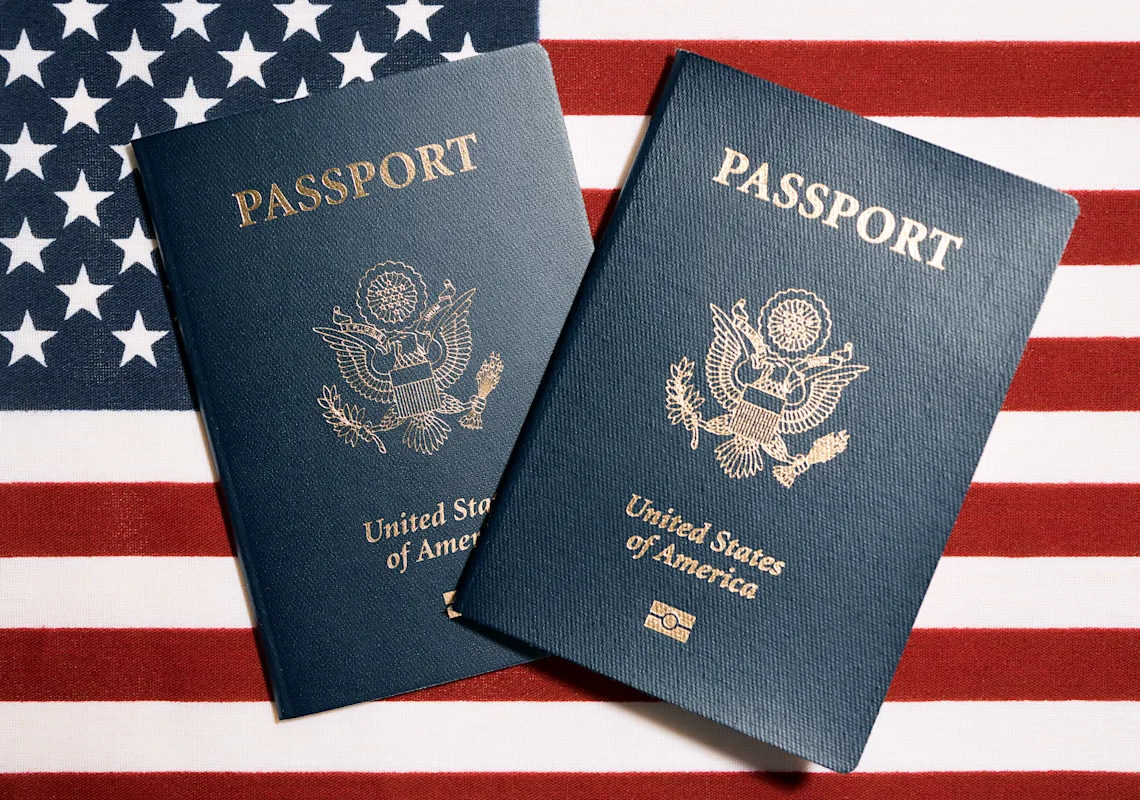Sign up for Unlocking the World, CNN Travel’s weekly newsletter. Get news about destinations, plus the latest in aviation, food and drink, and where to stay.
The United States is on the brink of dropping out of the top 10 ranking of the world’s most powerful passports.
In the latest quarterly update of the Henley Passport Index, created by the London-based global citizenship and residence advisory firm Henley & Partners, the US — which held the No. 1 position back in 2014 — has slipped down to the 10th place in the rankings.
It’s the lowest position ever for the US in the 20-year history of the index, which tracks the global freedom of movement for holders of 199 passports to 227 countries and territories around the world, using exclusive data from the International Air Transport Association (IATA). And because Henley counts multiple countries with the same score as a single spot in its standings, there are actually 33 countries that outrank the US on the list.
As we enter the second half of the year, Singapore has held onto its No.1 position as the world’s most powerful passport for 2025.
Holders of this most desirable of travel documents enjoy visa-free access to 193 out of 227 destinations worldwide, more than citizens of any other place on the planet.
Naturally, Singapore isn’t handing out passports to foreign nationals like candy. Applying for Singaporean citizenship requires at least two years of permanent residency, a review of “economic contributions” and other qualifications, and compulsory national service for male applicants.
South Korea has climbed to join Japan at No.2 in the ranking, with an open door to 190 destinations, ensuring that Asian nations have a solid lead in the global mobility race.
The EU member states of Denmark, France, Germany, Ireland, Italy, and Spain are all at No.3 behind them, in the third tier, along with Finland, with access to 189 destinations with no prior visa needed.
Europe holds sway over the fourth position in the rankings, too, which belongs to seven countries: Austria, Belgium, Luxembourg, Netherlands, Norway, Portugal and Sweden. All enjoy visa-free access to 188 destinations.
Squeaking into fifth place are Greece, Switzerland and New Zealand, all of which have visa-free access to 187 destinations.
The mobility gap
At the opposite end of the list, at No. 99, Afghanistan remains locked in bottom place, with visa-free access to just 25 destinations, one fewer than at the start of this year. Syria is at No. 98 (with 27 destinations) and Iraq is at No. 97 (with 30 destinations).
That’s a yawning mobility gap of 168 destinations between the top- and bottom-ranked passports.
The UK has dropped one spot to No. 6 in the rankings, with visa-free access to 186 destinations. Australia, the Czech Republic, Hungary, Malta and Poland are tied at No. 7, while Canada, Estonia and the United Arab Emirates are at No. 8.
The UAE is one of the biggest success stories on the index, having risen 34 places in the past decade, from No. 42 to eighth place.
China has also jumped from No. 94 to No. 60 since 2015, a rise that’s been achieved even without visa-free access to the 29 countries in Europe’s Schengen Area.
‘Active and strategic diplomacy’
Ninth place is shared by Croatia, Latvia, Slovakia and Slovenia, while No.10 is held by Iceland, Lithuania and the United States. The US now has visa-free access to 182 destinations worldwide.
In a provision in the Trump administration’s recently enacted domestic policy bill, the United States will soon require international visitors to pay a new “visa integrity fee” of at least $250, added to existing visa application costs. The fee will apply to all visitors who are required to obtain nonimmigrant visas to enter the United States.
Critics including the U.S. Travel Association, a national nonprofit organization aimed at increasing travel to the United States, have panned the new visa fee as discouraging to visitors.
Christian H. Kaelin, chair of Henley and Partners, said in a release that the latest Henley Passport Index reveals an increasingly competitive landscape in global mobility.
“The consolidation we’re seeing at the top underscores that access is earned — and must be maintained — through active and strategic diplomacy,” he said. “Nations that proactively negotiate visa waivers and nurture reciprocal agreements continue to rise, while the opposite applies to those that are less engaged in such efforts.”
Henley & Partners’ list is one of several indexes created by financial firms to rank global passports according to the access they provide to their citizens.
Arton Capital’s Passport Index takes into consideration the passports of 193 United Nations member countries and six territories — Taiwan, Macao, Hong Kong, Kosovo, the Palestinian territories and the Vatican. Territories annexed to other countries are excluded.
It’s also updated in real-time throughout the year and its data is gathered by close monitoring of individual governments’ portals.
Arton’s Global Passport Power Rank 2025 puts the United Arab Emirates in the top spot, with a visa-free/visa-on-arrival score of 179. Second place is held by Spain, with a score of 176.
The most powerful passports for 2025
-
Singapore (193 destinations)
-
Denmark, Finland, France, Germany, Ireland, Italy, Spain (189)
-
Austria, Belgium, Luxembourg, Netherlands, Norway, Portugal, Sweden (188)
-
Greece, New Zealand, Switzerland (187)
-
Australia, Czech Republic, Hungary, Malta, Poland (185)
-
Canada, Estonia, United Arab Emirates (184)
-
Croatia, Latvia, Slovakia, Slovenia (183)
-
Iceland, Lithuania, United States (182)
For more CNN news and newsletters create an account at CNN.com
The post US slips again in passport power rankings appeared first on CNN.



